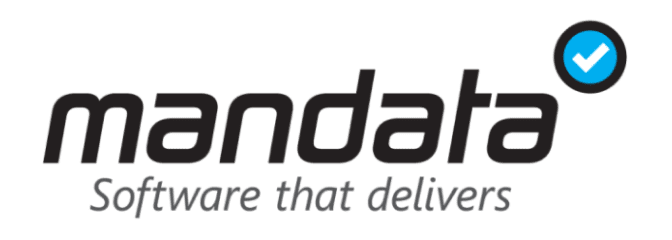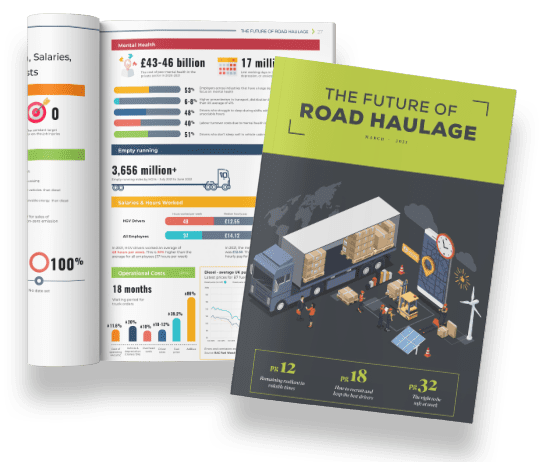What is Fleet Operator Recognition Scheme (FORS)?
In today’s world, where road safety and environmental concerns are paramount, the Fleet Operator Recognition Scheme (FORS) stands out as a vital tool for better fleet management. This article will break down FORS, explaining what it is, why it matters, and how it benefits both businesses and the community. We’ll explore its role in promoting responsible and sustainable transport. So, let’s take a closer look at FORS and discover how it’s shaping the way fleet operators do business and contribute to a safer and cleaner world.
What is FORS?
FORS (Fleet Operator Recognition Scheme) is an industry recognised accreditation earned by transport and haulage businesses, to demonstrate their dedication to running their operations efficiently, safely, and as environmentally considerate as possible. Although this is a voluntary scheme, a vast number of some of the most relied upon transport businesses across the UK have a level of FORS accreditation (levels of Bronze, Silver & Gold are accredited dependant on various standards) which often gives them the edge when customers choose their dedicated transport partner.
Why Is FORS Important?
Efficiency and safety have always been a focus for the transport industry, especially with the growing focus on environmental impacts within the industry. Gaining a FORS accreditation will not only highlight your transport companies commitment to promoting best practice in the industry, but also shows that you are implementing positive changes to reduce your carbon footprint.
Not only does a FORS accreditation promote the importance of environmental protection, it also can be the deciding factor for customers when partnering with a transport. It could be the difference between winning a new contract or losing out to a competitor. In an ever-growing competitive industry, it is even more essential to capitalise on new business wins and minimise customer losses. Achieving a FORS accreditation not only shows to the world that you run your company with the highest level of professionalism, but it also goes a long way towards them gaining trust in your organisation, leading to customer retention and new business wins.
This scheme also awards based on adherence to compliance within the industry. This helps your customers to trust you with the work you carry out for them giving them confidence that you are less liable for any compliance breaches resulting in hefty fines for your business, and ultimately effecting your ability to provide good customer service. A fantastic benefit of Silver or Gold achieved accreditation, automatically makes the recipient CLOCS (Construction Logistics & Community Safety) compliant – the construction variant of FORS accreditations.
It could also be assumed, with the way the industry is heading and with the greater focus on compliance in the industry, accreditation such as this may well be mandatory to work in certain sectors. This is just an assumption, however it is feasible that this may be introduced in the future.
Who can apply for FORS accreditation?
FORS accreditation is open to any organisation that operates a fleet of vehicles, regardless of size or industry. This includes logistics companies, construction firms, public sector entities, and more.
What are the different levels of FORS accreditation?
There are three levels of FORS accreditation: Bronze, Silver, and Gold. Each level represents a higher standard of compliance, safety, and performance. Organisations start with Bronze and can progress to Silver and Gold by meeting specific criteria and demonstrating continuous improvement.
FORS Bronze
The starting point for FORS accreditation, the Bronze level, focuses on basic legal compliance, including proper documentation, vehicle safety equipment, and driver awareness.
FORS Silver
Moving up to the Silver level requires organisations to demonstrate their commitment to improving road safety and environmental performance. This includes measures like regular vehicle safety inspections, implementing initiatives to minimise idling, and promoting driver training.
FORS Gold
The highest level of FORS accreditation, Gold, signifies an organisation’s dedication to achieving the highest standards in fleet management. It involves advanced safety measures, enhanced driver training, reduced environmental impact, and engagement with the local community.
What are the benefits of FORS accreditation?
There are various benefits of FORS accreditation including:
Enhanced Road Safety
FORS promotes road safety through measures such as proactive driver training, vehicle safety equipment, hazard awareness programs, and regular vehicle inspections. These efforts lead to safer roads for drivers, pedestrians, and other road users.
Environmental Responsibility
By promoting fuel efficiency, emissions reduction, and sustainable practices, FORS helps organisations minimize their carbon footprint and contribute to a cleaner environment.
Operational Efficiency
This shows a dedication to more streamlined a more efficient and green way of working, for example reducing empty running and emissions, cutting down on paper usage, and improve health and safety communication within the operational team.
Read more: How Transport Management Systems Improve Efficiency in Haulage
Competitive Advantage
FORS accreditation is a recognised symbol of excellence in fleet management. It can provide organisations with a distinct competitive edge when bidding for contracts or attracting customers who value safety, sustainability and an efficient transport partner.
Cost Savings
Improved fuel efficiency, reduced maintenance costs, and fewer accidents result in significant financial savings for accredited organisations.
Read more: The Impact of Transport Management Systems on Cost Savings and Profitability
Employee Morale
Comprehensive driver training and enhanced working conditions lead to increased job satisfaction and morale among drivers and staff.
How can an organisation apply for FORS accreditation?
Organisations can apply for FORS accreditation by registering on the FORS website and completing the necessary documentation. The application process involves an assessment of the organisation’s operations and compliance with the FORS standards. Businesses with Bronze, Silver, and Gold levels of FORS can also re-apply themselves to provide a progression pathway for continuous improvement.
Is FORS a legal requirement?
FORS is not a legal requirement in the United Kingdom. FORS is a voluntary accreditation scheme designed to promote best practices in fleet management, with a focus on safety, efficiency, and environmental sustainability. While it is not mandatory, many organisations choose to participate in FORS to demonstrate their commitment to these principles and to benefit from the program’s guidance and recognition.
How long is FORS accreditation valid?
FORS accreditation is valid for one year. Organisations must undergo annual audits to maintain their accreditation and demonstrate their ongoing commitment to meeting FORS standards.
Does FORS offer any support or resources to accredited organisations?
Yes, FORS provides a range of resources on the FORS website, including training materials, toolkits, guidance documents, and networking opportunities, to help accredited organisations meet the program’s standards and continuously improve their operations.
What is the significance of FORS accreditation in the industry?
FORS accreditation is widely recognised in the transportation and logistics industry as a mark of excellence. It signifies an organisation’s dedication to safety, sustainability, and best practices, giving them a competitive edge in the market and enhancing their reputation. FORS members can also display the FORS logo on their website, showcasing their commitment to industry best practice.
How does technology help obtain and retain a FORS Accreditation?
Technology plays a crucial role in obtaining and retaining a FORS Accreditation by providing tools and systems that streamline and enhance various aspects of transport management. Firstly, telematics and GPS tracking technology enable real-time monitoring of vehicle movements, helping to ensure compliance with safety and environmental standards by tracking speed, routes, and driver behaviour. Additionally, digital record-keeping systems simplify the documentation required for accreditation, such as driver training records, maintenance logs, and fuel consumption data. Moreover, software solutions can automate compliance checks and audits, reducing administrative burdens and ensuring that the necessary standards are consistently met.
Read more: How A TMS Could Help You Obtain and Retain a FORS Accreditation
In conclusion, FORS is a crucial program for fleet management, emphasising safety, efficiency, and sustainability. It assists businesses in thriving while fostering responsible transportation. It’s not just beneficial for fleets but also for society, creating safer and cleaner roads. As FORS continues to expand, it is reshaping the future of transport management, making it more responsible and efficient.

